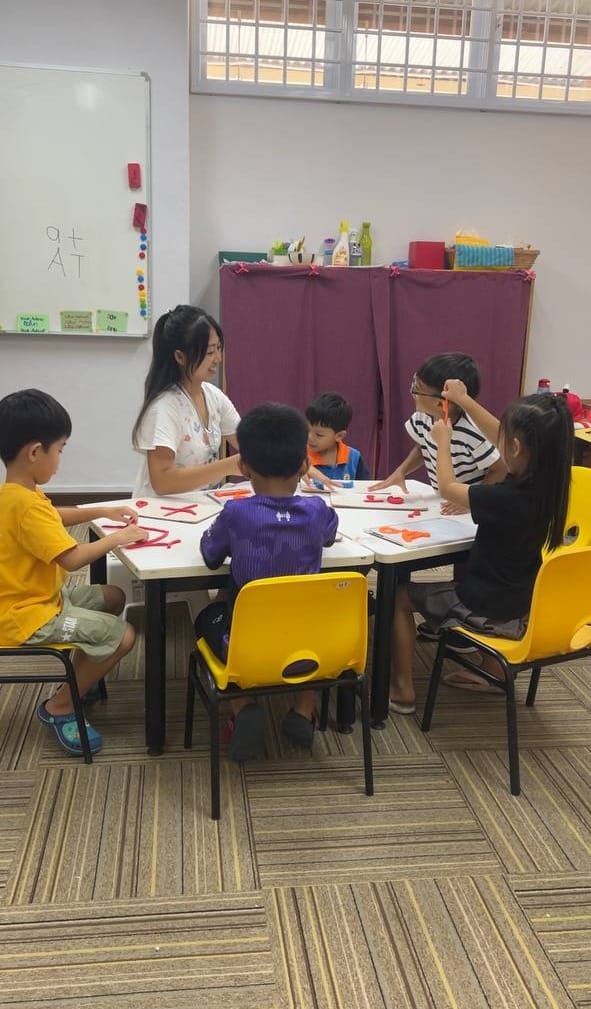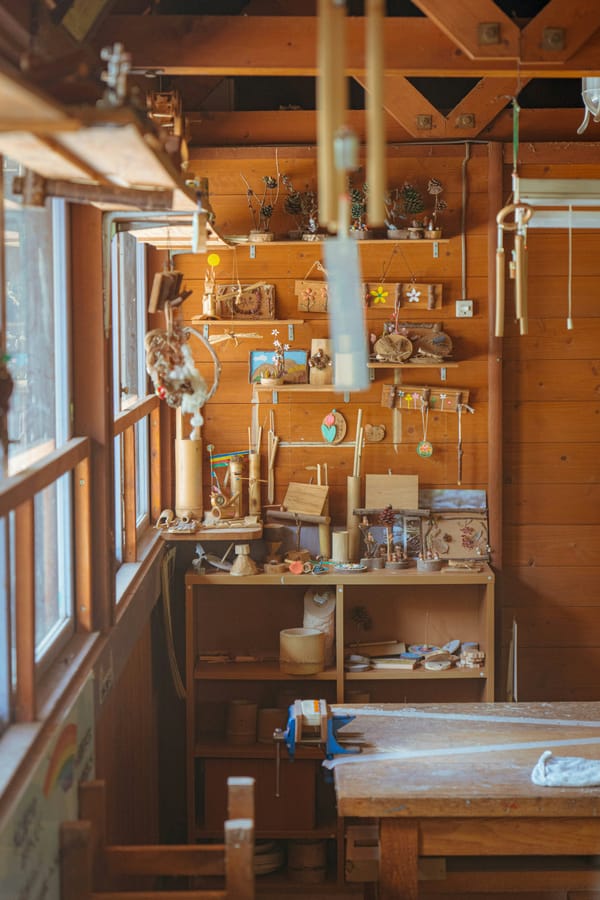Rasnaam Champions Teachers' Voices
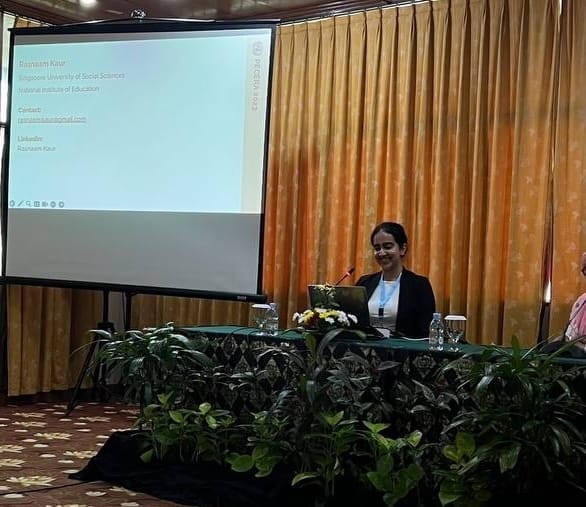
What do you remember from our final year course ECE499: Early Childhood Education Applied Project? For many of us, the memories revolve around burning the midnight oil, the tears, the anxiety of not meeting the word count, the tears(!!!), struggling to submitting everything before the deadline... Some of us came out of that experience never wanting to write a single sentence for the rest of our lives, while others thrived in it.
Rasnaam Kaur of Cohort 4, is an example of someone who falls in the latter category. "Research to me isn't taxing. To me, being creative in the classroom, or sometimes doing hands-on stuff, takes up more of me than research," she explained during our chat. "I'm not saying it's easy. Trust me, it's not."
"But just seeing [the research] as a teacher alone: the impact of your teacher research, of your reflection on your own practices, how much it can impact children... And then formally sharing and how much it can impact even just your centre...," she pondered. "It really made me feel like research is what I do. I feel like everybody has things that they are naturally good at. And I think research is something for me."
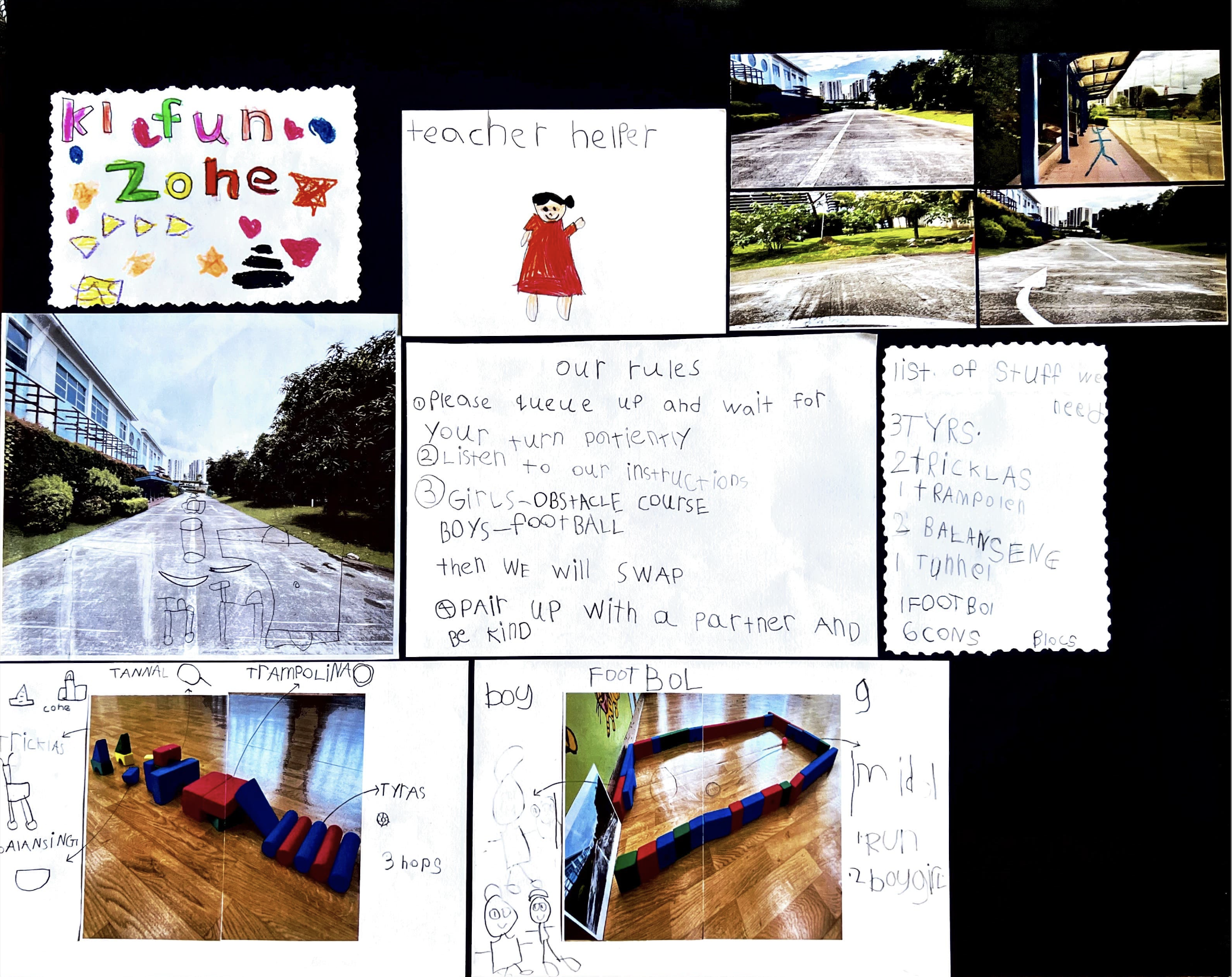
Rasnaam's love for research culminated over the years she was a student. "I've always had a thing for academic reading and writing. I really like to read things that were presented in an academic way," she recalled. "And I think my love for research really development when we were really looking for research, what's happening in the world."
Working in Research
Eventually, Rasnaam's passion led her to a research assistant position at the Centre for Research in Child Development (CRCD) at the National Institute of Education (NIE) in 2022. "I sometimes say that I study for a living. Like I'm always finding out things. I absolutely love it."
In 2 years, she has climbed to the position of Senior Research Assistant and currently is leading her own team in research project with ECDA.
"I always felt like as a teacher, because through my internships and experience, I wasn't able to make as much of a difference as I wanted to; versus in my current role, I'm in charge of a lot more," Rasnaam compares. "I feel like the impact that I'm making in early childhood is more observable to me."
Thus far, Rasnaam has worked on three research projects at NIE. In her first project, she worked with an anchor operator preschool to assessment children's learning, development and well-being with one-on-one child testing.
In her second, she analysed teacher's understanding of quality interactions. "Quality interactions has been a buzzword in early childhood recently... lots of findings published from that." She has also been to international conferences to present these findings in places like Bali and Japan!
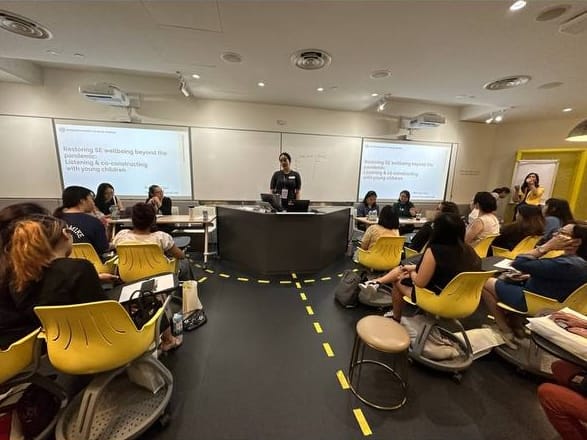
In her current project, she is working with ECDA on a tool that will support teachers in their reflections and self-evaluation to uplift their pedagogy. "Being in research that directly impacts and helps other educators be more intentional in their practices with children... that's how I believe that I still give back to the ground," she shared. In fact, Rasnaam pushed for a subsample of teachers to evaluate and give feedback on the teaching tool before it got rolled out.
"If you want to do something to benefit people from the ground, you've got to have that teacher voice. You've got to go ground up and bottom up. So, we want to hear how teachers are feeling about this. I strongly believe that you need to have that teacher voice."
Teachers' Voices
We spent more time on the topic of teachers' voices in research. "Something that's kept me motivated is, in NIE, you almost never find an early childhood researcher. Researcher are from English Language; they are from psychology," Rasnaam explained. "It's very rare to find an early childhood researcher... Which then means that early childhood is not being represented enough in research or in policy.
"All these things are being made - but where's the voice of the teachers? Where's the voice of what's going on in the ground? I think that motivates to really, not just be a researcher, but to train myself enough [in both qualitative and quantitative tools]," she said. "Because there are no other early childhood researchers I've come across yet. I feel like I'm trying to fill in a gap of what's needed."
"Interestingly, I have a Word document open where I said, "Why don't we practice what we do with children to teachers?" Rasnaam laughed. "We have a strengths-based view of children; we need that for teachers... I first realised there's a gap for both children's voices and teachers' voices whenever I read papers and did grant proposals. I sometimes feel like a lot of projects are focused on proving something for whatever interests or political agenda they have. And nobody really card about solving an issue."
"Yes, we want to uplift quality, but why can't we figure out where we're lacking? Is it teacher training? Is it teacher education? Is it in-service teachers that have been there for more than 20 years that need a refresh on their practice? And you can't do any of that unless you directly ask the source."
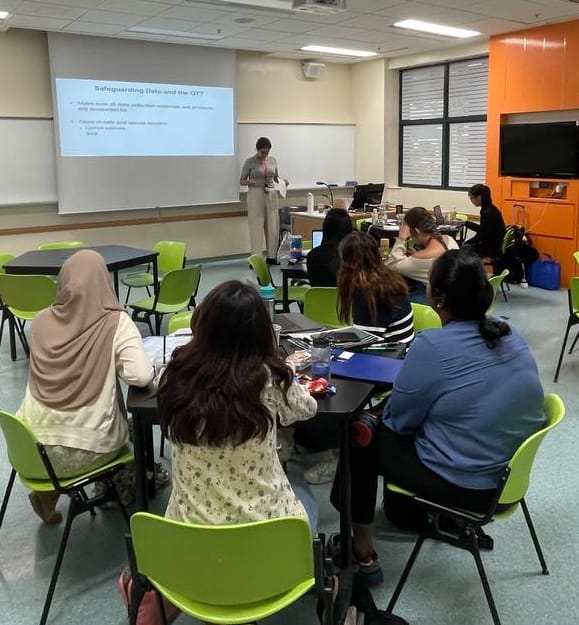
For Teachers Versus Onto Teachers
"I spoke at the Redesigning Pedagogy International Conference a couple of weeks ago. I talked about reflecting teachers' voices and understanding teachers' perspectives when we're doing curriculum reviews and understanding teacher well-being... I think people have been going about it the wrong way sometimes. How hard is it to just ask [teachers] what they are feeling?" she wondered aloud as she reflected on how her previous two projects made her realised how important it was to make teachers feel heard.
"I have seen what's needed from the top down - from policy, what the government wants to fund, what our regulatory authorities are trying to do... I understand what the research is trying to push. But [teachers] are right there, and they can tell me what's happening on the ground, then together, through a multi-disciplinary [approach], we can really address and solve everyone's issues together," she presses.
"I think people need to understand that a lot of the times, we can start developing solutions when we choose to listen. Just listening to others, to yourself, and understanding that it's always to reprioritise, it's okay to realign goals, it's okay to redefine things that you're doing, creates this culture of 'I'm ready to for your input to add to this, I'm ready for us to collaborate and figure this out together'."
"I think the way that it's communicated... the delivery of it. I really believe in getting teachers involved," she continued. "I think just being very honest in our communication that we're open to feedback, if you have suggestions let us know, and we'll revise the tool in a year or two."
"Just showing teachers that we truly value their inputs, and not only do we hear you, we will do something to change. It's the same thing with children, like you can listen to all you want, but if you have no follow through, it doesn't mean anything to them," she shared. "I feel like being able to be open and receptive to feedback... and change, would be one of the ways that we can show and prove to teachers that we are doing this for them, and not onto them," she pondered.
Aspirations for the Industry
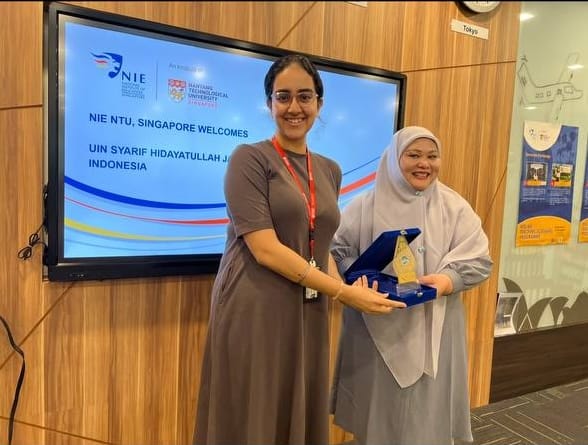
Our conversation remained hopeful as Rasnaam discussed her views on the industry at large. "I think it's progressed in the right direction a little bit. We do see centres talking about research bites, like, oh, you know, 'this is what you should do with children during mealtimes'.... I do feel like I see a little more parental involvement. Parents are understanding how important early childhood is."
"We're starting to see that principals are okay if teachers want to do more unique things in their classroom, or they want to stretch the curriculum a little bit, and they want to be more constructive, or more child-centric, or they want to bring in what they're learning... I think the road is long, and we have a long way to go."
At the same time, Rasnaam is keen to see more funding going into local research. As she rightly pointed out, there are unique factors impacting the quality of early childhood education in Singapore that nobody else in world has. "We need to understand what's happening on the ground and just tackle it as it comes." S hopes to see a mindset shift in the way we approach policy and research in early childhood.
"For people to value early childhood educators for policies, to value early childhood, for government funding to be channelled... It's the same way we talk about our image of the child."
She also shared about the connection between research and classroom teaching. "We need to help them operationalise. Like, you cannot keep pouring all these professional development packages on them and just be like, 'go for this course, go for that course'. But, like, if they were to point blank, ask you, 'So, what do you want me to do tomorrow in the classroom with these children?' How do we translate that? It's think we rethink our teacher training and what they are doing in the classroom."
Research in the Classroom
If you're reading this article as a classroom teacher, wondering how research is still applicable to you, know that you are incredibly important to the field. "Research is not something that you only do if you're sitting in an office. Research is, honestly, a lot of what you already do with your children," Rasnaam highlighted.
"You observe them, you analyse what they're trying to do, you try to tweak your practices, you try to be responsive, and just realise that (and this was something that I had to learn) research is not always this big, big, big thing, but research is micro," she pointed out.
"Teacher research is the small impact that you make every single day that makes a difference in children's lives, and I think just hone in on those skills, just develop those skills... they're easily transferable to any role that you're in."
She thought about a few words of wisdom for our alumni. "My advice would be: enjoy teaching, and never stop pushing yourself. If where you're at in the Centre doesn't work for you, try talking to your higher-ups, try creating that community around you. If that doesn't work, don't be afraid to move, don't be afraid to try different things," she encouraged. "Honestly, anything that you can think of in early childhood, as long as you truly have the passion and the heart to make an impact, I think you'll always succeed."
"Just really take care of yourself!" she added. "Don't be afraid to go there, and just don't let, take care of yourself, so that burnout doesn't become the reason you leave doing what you love. But just find a place that lets you thrive. It's the same thing that we tell children, if it's not a good fit, find a place that lets them thrive, and just remember that you should apply the same principles to yourself."
"We are getting there, and what you're doing means so much, and it makes such a big difference, and just remember that about yourself. When the going gets tough, just remember why you got in, and remember the difference that you're making, and don't be afraid to ask for help. Odds are, if we're all in early childhood, we're all really ready to help," Rasnaam smiled as she ended our conversation.
Rasnaam, it feels great having someone backing us up somewhere high up in the offices. Thank you for standing for teachers' voices and speaking to Circle Time! We wish you all the best and can't wait to hear your next sharing!



